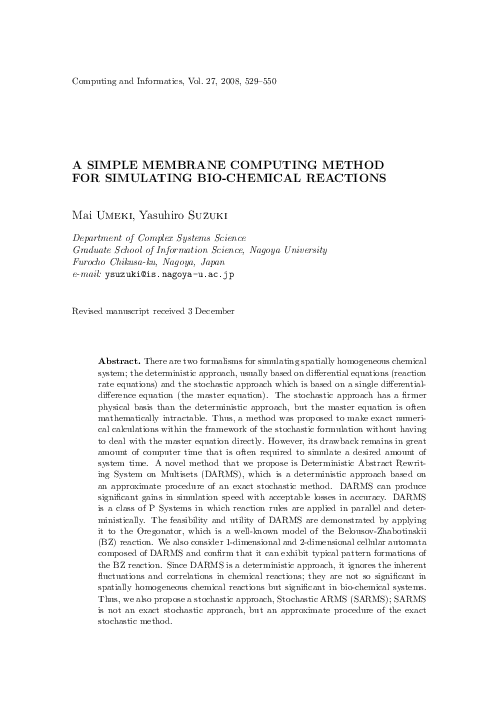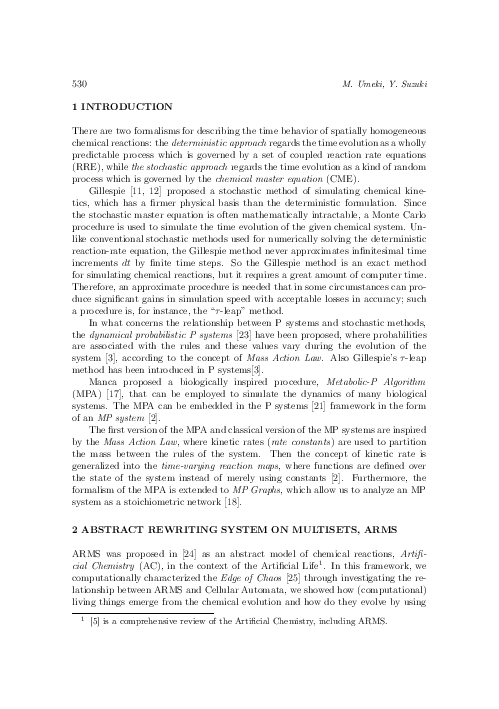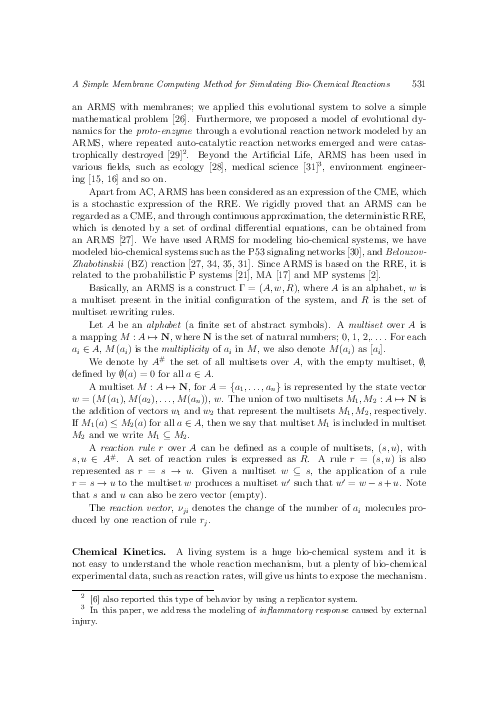A Simple Membrane Computing Method for Simulating Bio-Chemical Reactions
There are two formalisms for simulating spatially homogeneous chemical system; the deterministic approach, usually based on differential equations (reaction rate equations) and the stochastic approach which is based on a single differential-difference equation (the master equation). The stochastic approach has a firmer physical basis than the deterministic approach, but the master equation is often mathematically intractable. Thus, a method was proposed to make exact numerical calculations within the framework of the stochastic formulation without having to deal with the master equation directly. However, its drawback remains in great amount of computer time that is often required to simulate a desired amount of system time. A novel method that we propose is Deterministic Abstract Rewriting System on Multisets (DARMS), which is a deterministic approach based on an approximate procedure of an exact stochastic method. DARMS can produce significant gains in simulation speed with acceptable losses in accuracy. DARMS is a class of P Systems in which reaction rules are applied in parallel and deterministically. The feasibility and utility of DARMS are demonstrated by applying it to the Oregonator, which is a well-known model of the Belousov-Zhabotinskii (BZ) reaction. We also consider 1-dimensional and 2-dimensional cellular automata composed of DARMS and confirm that it can exhibit typical pattern formations of the BZ reaction. Since DARMS is a deterministic approach, it ignores the inherent fluctuations and correlations in chemical reactions; they are not so significant in spatially homogeneous chemical reactions but significant in bio-chemical systems. Thus, we also propose a stochastic approach, Stochastic ARMS (SARMS); SARMS is not an exact stochastic approach, but an approximate procedure of the exact stochastic method.
reference: Vol. 27, 2008, No. 3+, pp. 529–550


